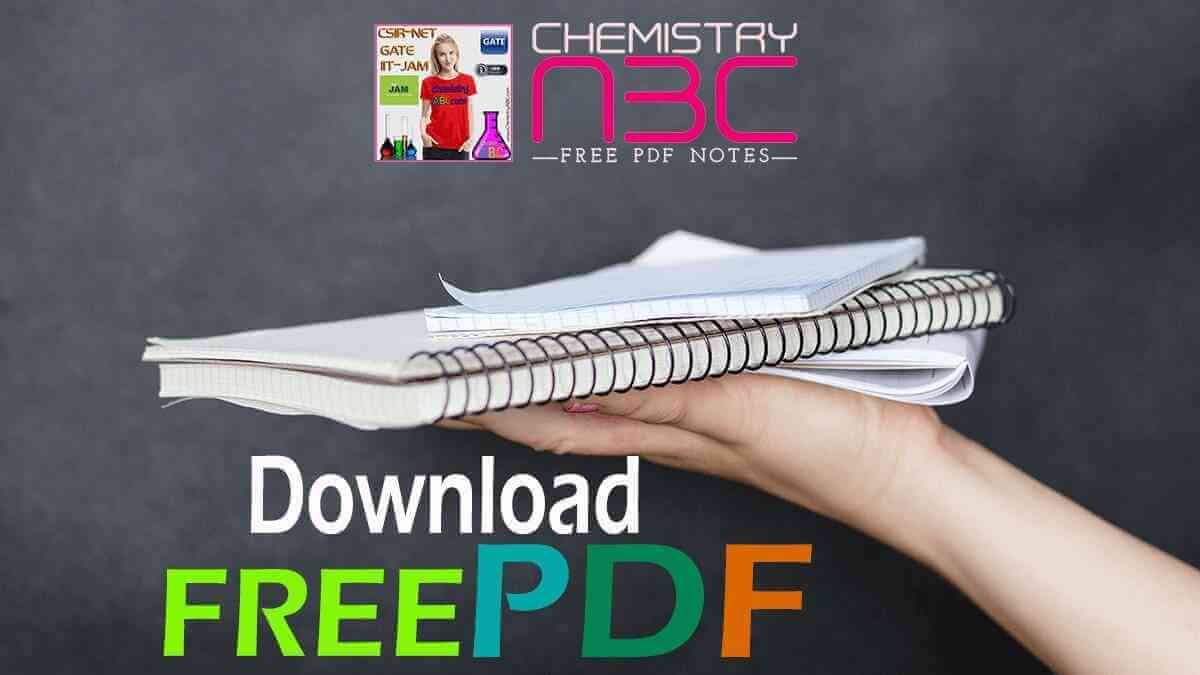Download Some Basic Concepts in Chemistry (Handwritten) in PDF
Some Basic Concepts In Chemistry Class 11
Chemistry is the study of matter and its properties, and it is a vital subject for Class 11 students. In this post, we will discuss some basic concepts in chemistry that are important for students to understand.
Fundamental Principles of Chemistry
Before we dive into specific concepts, it’s important to understand some fundamental principles of chemistry:
- Matter is made up of atoms, which are the smallest units of an element.
- Atoms combine to form molecules, which are the smallest units of a compound.
- Chemical reactions involve the breaking and forming of chemical bonds between atoms.
- Chemical reactions obey the law of conservation of mass and energy.
Basic Concepts in Chemistry
1. Matter and Its Composition
Matter is anything that has mass and occupies space. It can exist in three states: solid, liquid, or gas. The composition of matter can be described in terms of its elements, compounds, and mixtures.
2. Atomic Structure
Atoms are composed of protons, neutrons, and electrons. The number of protons in an atom determines its atomic number, which identifies the element. The number of neutrons can vary, giving rise to isotopes. Electrons occupy energy levels around the nucleus of an atom.
3. Chemical Bonding and Molecular Structure
Chemical bonding involves the sharing or transfer of electrons between atoms. Covalent bonds involve the sharing of electrons, while ionic bonds involve the transfer of electrons. The arrangement of atoms in a molecule is determined by its molecular structure.
4. States of Matter
Matter can exist in three states: solid, liquid, or gas. The properties of each state are determined by the arrangement and motion of the particles that make up the matter.
5. Solutions
A solution is a homogeneous mixture of two or more substances. The substance that is present in the largest amount is called the solvent, while the substance that is dissolved is called the solute.
6. Chemical Reactions and Equations
Chemical reactions involve the breaking and forming of chemical bonds between atoms. The reactants are the starting materials, while the products are the substances that are formed. Chemical reactions can be represented using chemical equations.
After Very Hardworking by contacting Toppers Some Basic Concepts in Chemistry (Handwritten) in PDF. Here We Are Sharing Some Basic Concepts in Chemistry (Handwritten) in PDF.
These Some Basic Concepts in Chemistry (Handwritten) in PDF Class Notes is printed with a high-quality printer so that visible quality should be the best. These Typed/scanned Notes are full of Quick Tips & Tricks Which Are Very Very Important For Your Board Exams.
So Don’t Lose This Opportunity. Just Leave Every Minor thoughts Behind and Concentrate on your Exam.
www.ChemistryABC.com website is Purily Educational. Our Authors Never upload any type of Copyrighted Material and not even host any Copyrighted Contents. We strongly recommend Students to support the real author or publisher of the respective books, study materials and buy all Copyrighted Material from legal sources only.
For any query or suggestion Please Mail to us [email protected]
Important Instruction: Just Prepare only with All above Listed Typed/scanned Notes and Try to solve previous year’s papers for the last 10 years at least 3 times.
If you follow Our instruction then you will definitely get selection marks in your Upcoming Exam.
FAQs
Class 11 Chemistry Notes FAQs
General Questions
- Q: What is Class 11 Chemistry?
- A: Class 11 Chemistry is a course offered to students in the 11th grade that covers basic concepts and principles of chemistry.
- Q: Why is Chemistry important in Class 11?
- A: Chemistry is an essential subject in Class 11 as it helps students understand the properties of matter and the changes that matter can undergo. It is also important for students who wish to pursue careers in science, medicine, and engineering.
- Q: What are some of the key topics covered in Class 11 Chemistry?
- A: Some of the key topics covered in Class 11 Chemistry include some basic concepts of Chemistry, Structure of Atom, Chemical Bonding and Molecular Structure, States of Matter, Equilibrium, and Redox Reactions.
- Q: What are some tips for studying Class 11 Chemistry?
- A: Some tips for studying Class 11 Chemistry include understanding the basic concepts, practicing problems, using diagrams and charts to visualize concepts, and reviewing regularly.
Concepts and Equations
- Q: What are some of the basic concepts of Chemistry covered in Class 11?
- A: Some of the basic concepts of Chemistry covered in Class 11 include matter, elements, compounds, mixtures, atomic structure, chemical bonding, and chemical reactions.
- Q: What are some of the key equations that students should know in Class 11 Chemistry?
- A: Some of the key equations that students should know in Class 11 Chemistry include the ideal gas equation (PV=nRT), the formula for calculating the number of moles (n = mass/molar mass), and the equation for calculating the concentration of a solution (C = n/V).
- Q: What is the mole concept?
- A: The mole concept is a fundamental concept in Chemistry that relates the number of particles (atoms, molecules, ions) to the mass of a substance. It is used to calculate the amount of a substance present in a given sample.
- Q: What are some common types of chemical reactions?
- A: Some common types of chemical reactions include synthesis reactions, decomposition reactions, single displacement reactions, double displacement reactions, and combustion reactions.


all b.sc, m.sc chemistry pratical books need
email id [email protected]